Bernie Allen
For over half a century Bernie Allen’s name has been hidden in the credits of many recordings, films and TV shows that involve New Zealand music.
While jazz is his first love, and the saxophone his preferred instrument, Allen is a multi-instrumentalist and arranger whose work ranges from early Johnny Devlin sessions to soundtracks of TV shows such as Under the Mountain.
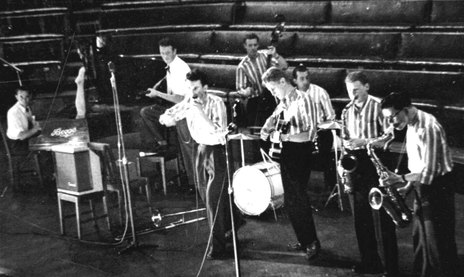
Bernie Allen (on the right) playing rock and roll in 1957
Photo credit:
Bernie Allen collection
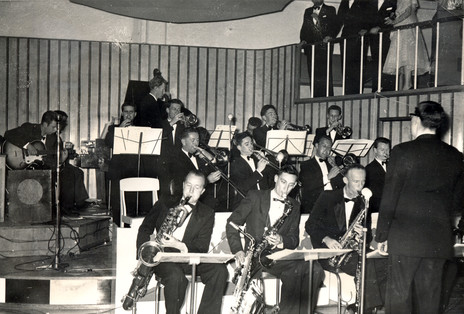
Bernie Allen Big Band at the Peter Pan Cabaret, Auckland.
Photo credit:
Bernie Allen Collection
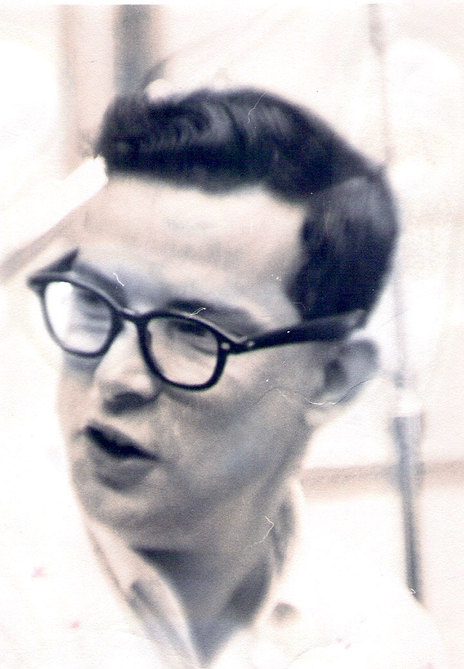
Bernie Allen in the mid 1960s
Photo credit:
Bernie Allen collection
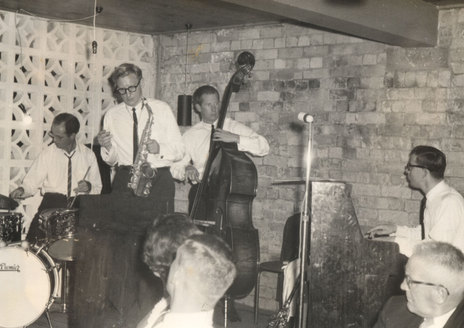
Bernie Allen and band at Embers
Photo credit:
Bernie Allen collection
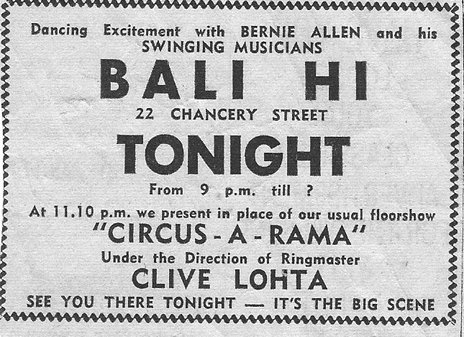
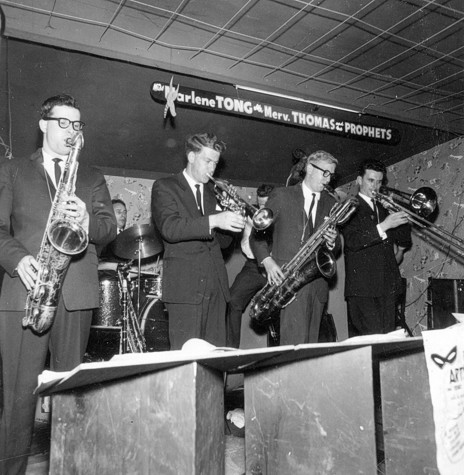
Merv Thomas and the Prophets, Crystal Palace, 1962 (L-R): Bernie Allen, Brian Spence, Morrin Cooper, Stewart Parsons, and Merv Thomas. Obscured is bass player Bernie Hanssen.
Photo credit:
Merv Thomas Collection
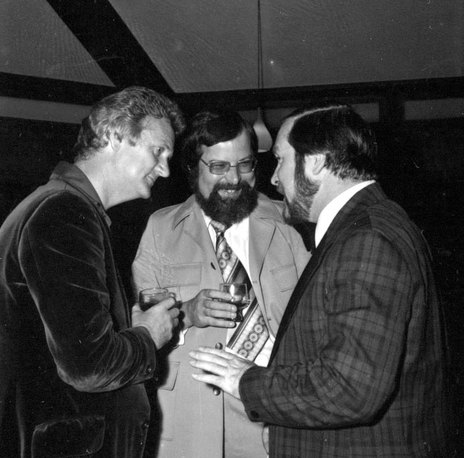
Phil Warren with bandleaders and arrangers Wayne Senior (left) and Bernie Allen (centre), 1976
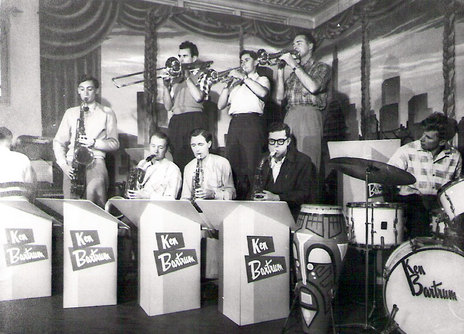
Ken Bartrum Band at Auckland's Orange Ballroom early 1957
Photo credit:
Bernie Allen collection
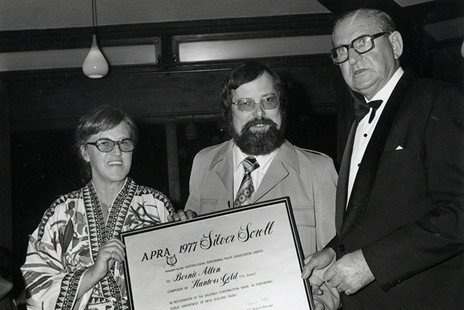
Apra Silver Scroll, 1977 (L-R): Pat Bell of Apra NZ, Bernie Allen, and Bob Hughes, chairman of Apra.
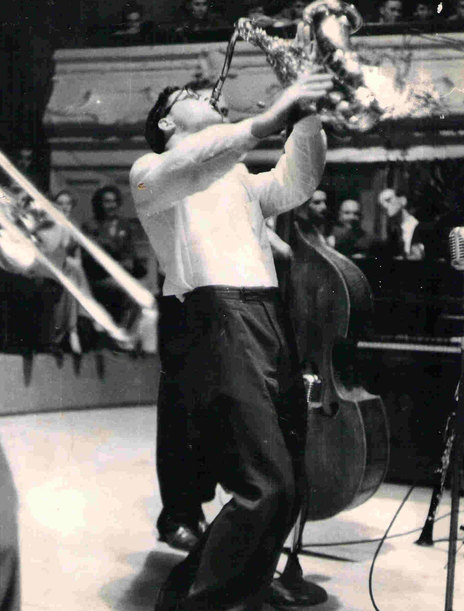
Bernie Allen at The Auckland Town Hall, June 1957
Photo credit:
Bernie Allen collection
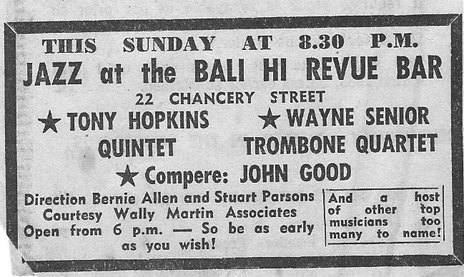
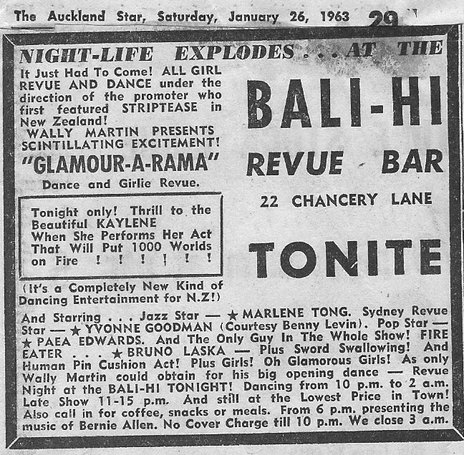
Auckland Star, June 1963
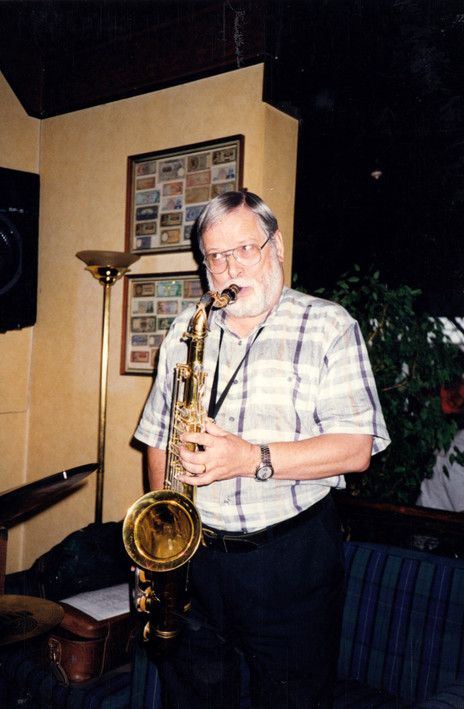
Bernie Allen at the Gables, Auckland.
Photo credit:
Dennis Huggard
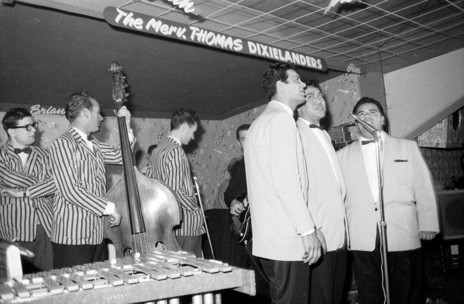
The Crystal Palace, Mt Eden Road, Auckland, 6 August, 1960. Bernie Allen at left with crossed arms, Merv Thomas holding trombone, and singing trio The Deuces (from left): Nuki Waaka, Robin Waata, George Tumahai.
Photo credit:
Rykenberg - Auckland Libraries Heritage Collections 1269-B0752-29
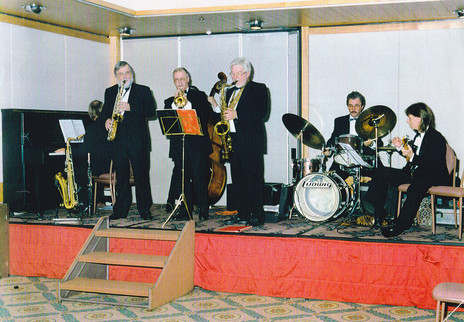
Corporate gig during the 1990s with Bernie Allen on alto saxophone, Kim Paterson on trumpet, an unidentified saxophonist, Barry Young on drums, Alan Quennell on guitar. Pianist is thought to be Phil Broadhurst.
Photo credit:
Kim Paterson collection
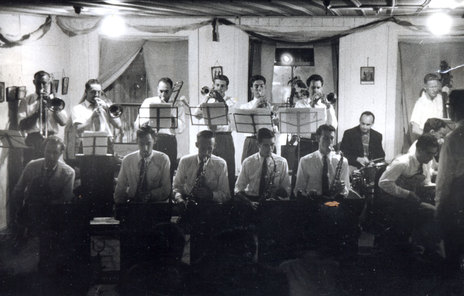
The Bernie Allen Big Band playing in a club in Swanson Street, Auckland
Photo credit:
Bernie Allen collection
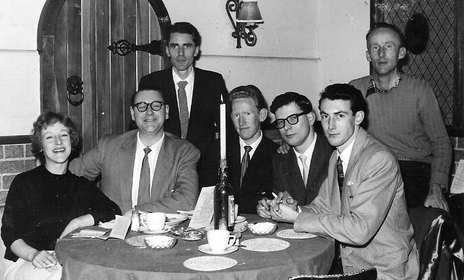
Bernie Allen Tentette at Fagels' Jazz Club, Federal Street, Auckland 1959
Photo credit:
Bernie Allen collection
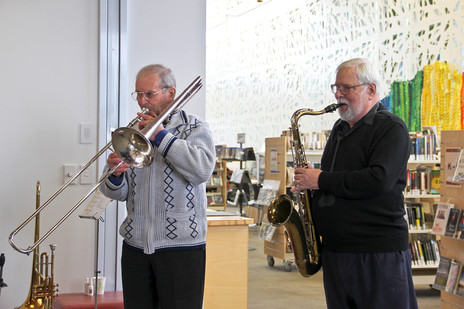
Merv Thomas and Bernie Allen, many years after their collaboration at the Jive Centre - Birkenhead Library, 2016.
Photo credit:
Merv Thomas Collection
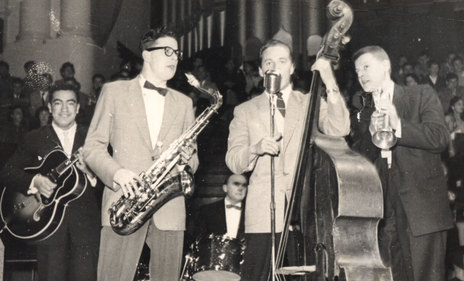
Bernie Allen at Auckland Town Hall with Len Hutchinson
Photo credit:
Bernie Allen collection

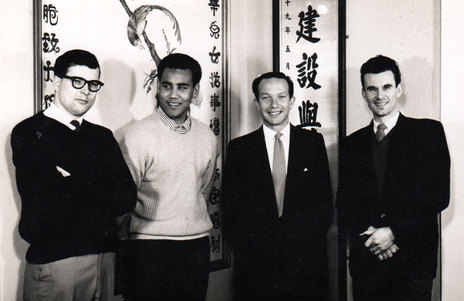
Auckland Bandleaders at the Oriental Ballroom, Symonds Street, July 1962. From left: Bernie Allen, Al Patchett (Paget), Bill Sevesi and Merv Thomas
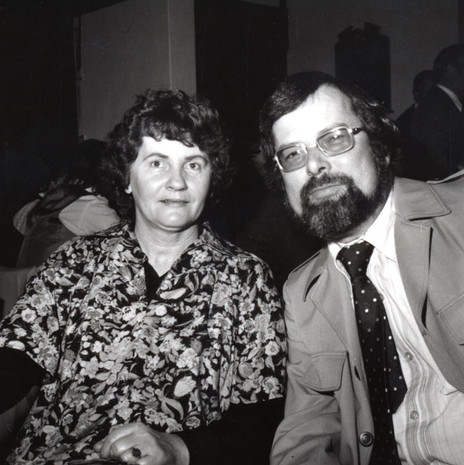
Bernie Allen and partner, Apra Silver Scroll, 1978
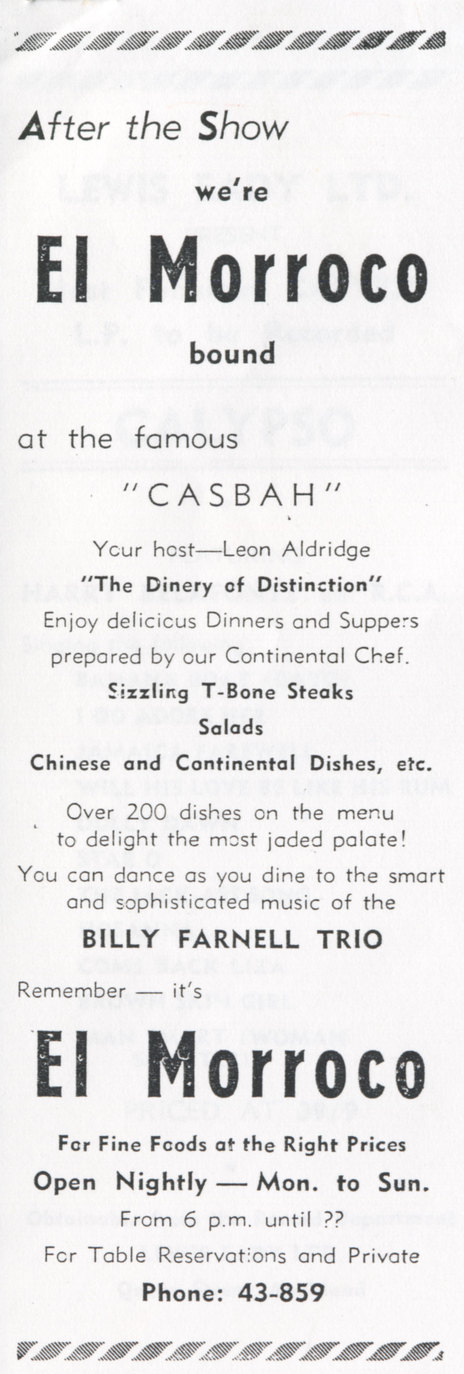
Radio Times (with Bernie Allen's Radio Times Band)
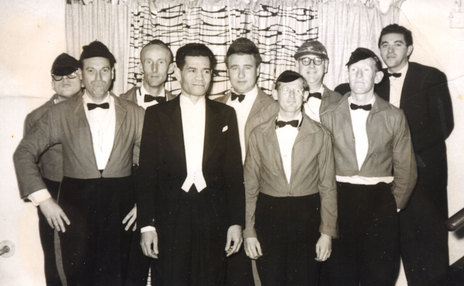
The Arthur Skelton band at the Peter Pan Ballroom, Auckland 1958
Photo credit:
Bernie Allen collection
Goodnight Kiwi Theme
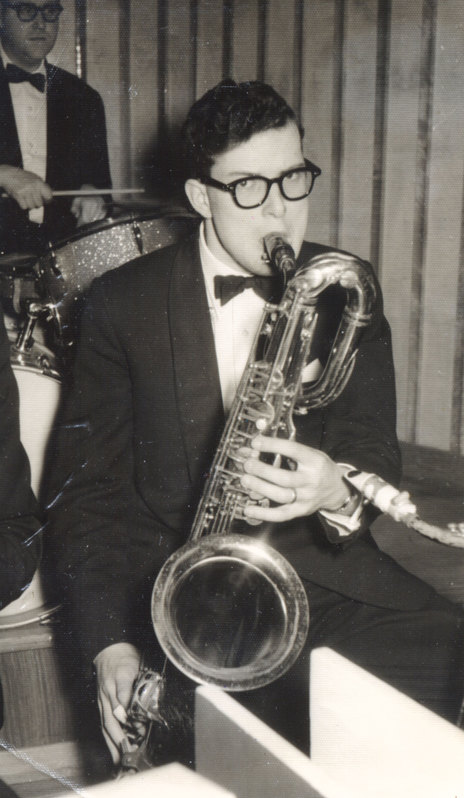
Bernie Allen
Photo credit:
Bernie Allen collection
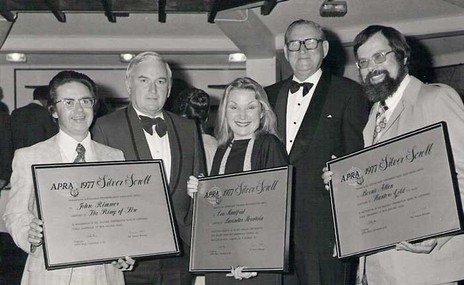
John Rimmer, Ashley Heenan (New Zealand Writer-Director of Apra), Bob Hughes (Chairman of Apra) and Bernie Allen - Apra Silver Scroll, 1977
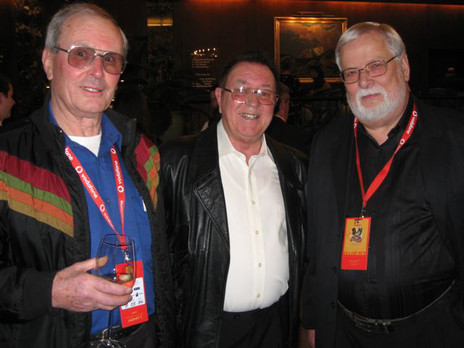
Merv Thomas and Bernie Allen with Johnny Devlin, centre.
Photo credit:
Merv Thomas Collection
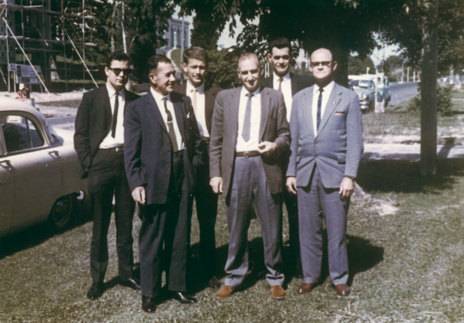
Union dues: the New Zealand Musician’s Union executive committee arrive in Hamilton to form a sub-branch, 1964. From left: Bernie Allen, bass-player Spike Donovan, Morrin Cooper president, Tom Skinner secretary, Viv Coombes vice-president, and pianist Lyall Laurent
Photo credit:
Bernie Allen collection
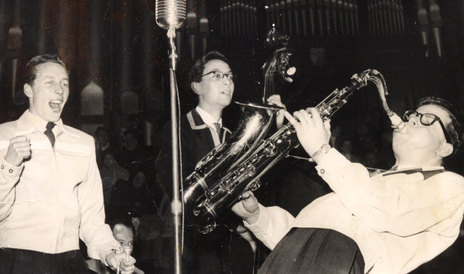
Bernie Allen at an Auckland Town Hall rock and roll show with Lynn Christie
Photo credit:
Bernie Allen collection
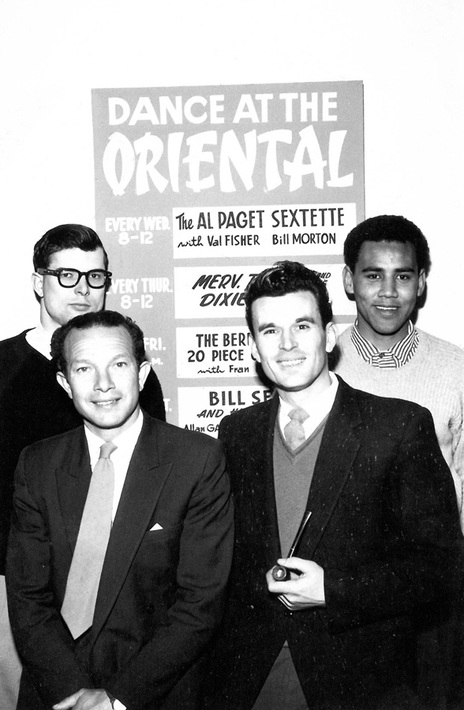
Four Auckland bandleaders ready for their residencies at the Oriental Ballroom, Symonds Street, July 1962. From left: Bernie Allen, Bill Sevesi, Merv Thomas and Al Patchett
Photo credit:
Phil Warren Collection
Discography